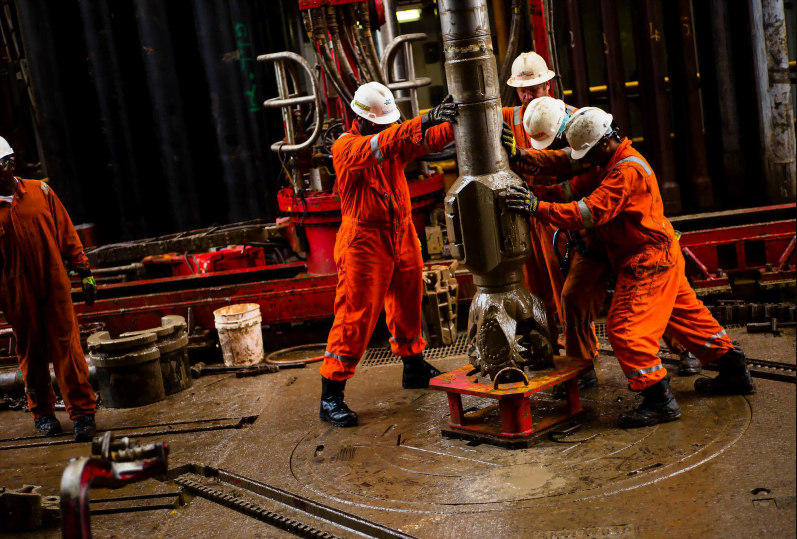Oil and gas production has been a cornerstone of the global economy for over a century, and it continues to be a significant contributor to many countries’ gross domestic product (GDP). As such, it remains an attractive career path for many individuals seeking a stable, well-paying job. However, whether or not oil and gas production is a good career path depends on several factors, including economic conditions, industry trends, and personal preferences.
is oil & gas production a good career path
One of the main benefits of pursuing a career in oil and gas production is the potential for high earnings. Salaries in this field can range from entry-level positions, such as roughnecks and derrick operators, to top-level management positions, such as chief executives and chief financial officers. In addition to salaries, many oil and gas production workers receive benefits such as healthcare, retirement plans, and stock options, making it a potentially lucrative career path.
However, the oil and gas industry is also known for its cyclical nature. During periods of high oil prices, companies may ramp up production and increase hiring, leading to job security and potentially significant income. Conversely, during times of low oil prices, companies may cut back on production and lay off workers, leading to decreased job security and lower income. This volatility can make oil and gas production a risky career path for some.
Another factor to consider is the potential environmental impact of oil and gas production. The process of extracting and processing fossil fuels can have negative effects on the environment, such as air and water pollution and habitat destruction. For individuals concerned about the environment and sustainability, a career in oil and gas production may not align with their values.
Furthermore, the long-term outlook for the oil and gas industry is uncertain. As the world moves towards a more sustainable future, the demand for fossil fuels may decrease, leading to potential job loss and decreased opportunities in the industry. While some companies are investing in renewable energy and transitioning away from fossil fuels, others may continue to rely heavily on oil and gas production.
It is also worth considering the potential physical demands of working in oil and gas production. Many positions in the industry involve long hours, physically demanding work, and exposure to hazardous materials. Individuals considering a career in this field should be aware of the potential risks and take steps to protect their health and safety.
The Pros and Cons of a Career in Oil & Gas Production
A career in oil and gas production offers several advantages and disadvantages. On the positive side, the industry provides lucrative job opportunities with competitive salaries and benefits. Oil and gas production is a vital sector that plays a significant role in global energy supply, providing stability and job security. Additionally, professionals in this field can gain valuable technical skills and expertise in drilling, extraction, and refining processes. However, there are also challenges associated with this career path. The industry is highly competitive, demanding long working hours, extensive travel, and exposure to potentially hazardous environments. Fluctuating oil prices and market uncertainties can impact job stability and financial prospects. Furthermore, environmental concerns and the transition to renewable energy sources pose long-term challenges for the oil and gas industry.
How to Get Started in a Career in Oil & Gas Production
To pursue a career in oil and gas production, individuals can follow several pathways. Obtaining relevant education and training is crucial, such as earning a degree in petroleum engineering, geology, or a related field. It is also beneficial to gain practical experience through internships or entry-level positions in the industry. Building a strong network and connecting with professionals already working in the field can provide valuable guidance and opportunities. Developing technical skills and staying updated with industry trends and technologies is essential. Additionally, acquiring certifications or licenses required for specific roles, such as well control certification, can enhance job prospects in this competitive industry.
The Future of the Oil & Gas Industry
The oil and gas industry is undergoing significant changes as the world transitions towards renewable energy sources and emphasizes environmental sustainability. This shift poses both challenges and opportunities for professionals in the field. The industry is adapting by investing in cleaner technologies, such as carbon capture and storage, and exploring alternative energy options. The demand for skilled professionals in areas like renewable energy development, energy efficiency, and environmental compliance is expected to increase. Therefore, individuals interested in a career in oil and gas production should consider acquiring knowledge and skills that align with the evolving needs of the industry. Adapting to new technologies, diversifying expertise, and staying abreast of industry trends can help professionals navigate the changing landscape and secure promising opportunities in the future.
In conclusion, whether or not oil and gas production is a good career path depends on various factors. While the potential for high earnings and benefits may be attractive, the cyclical nature of the industry, environmental concerns, and long-term outlook should also be considered. Additionally, the physical demands of the job may not be suitable for everyone. As with any career decision, individuals should carefully weigh their options and consider their personal values, goals, and interests before pursuing a career in oil and gas production.

